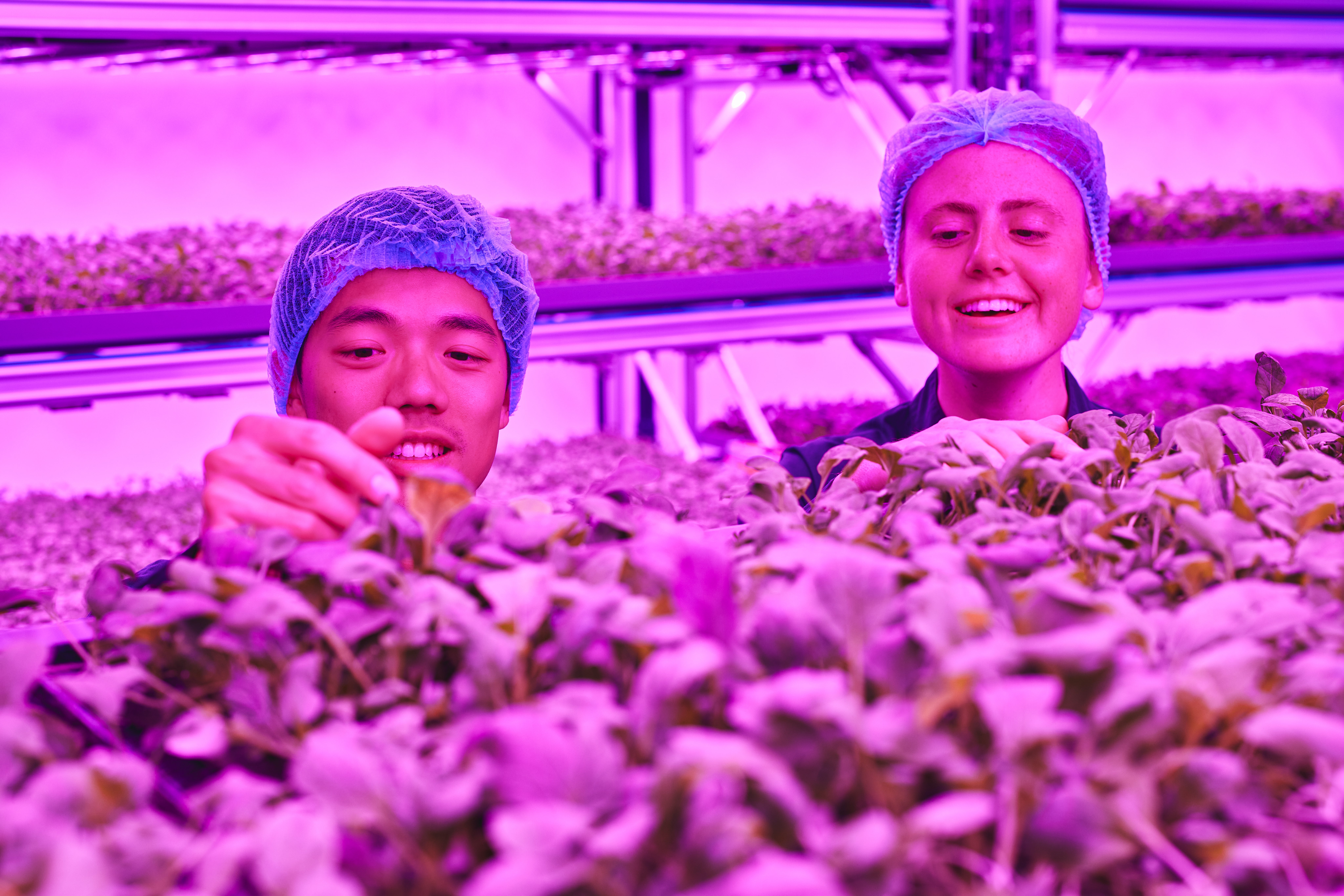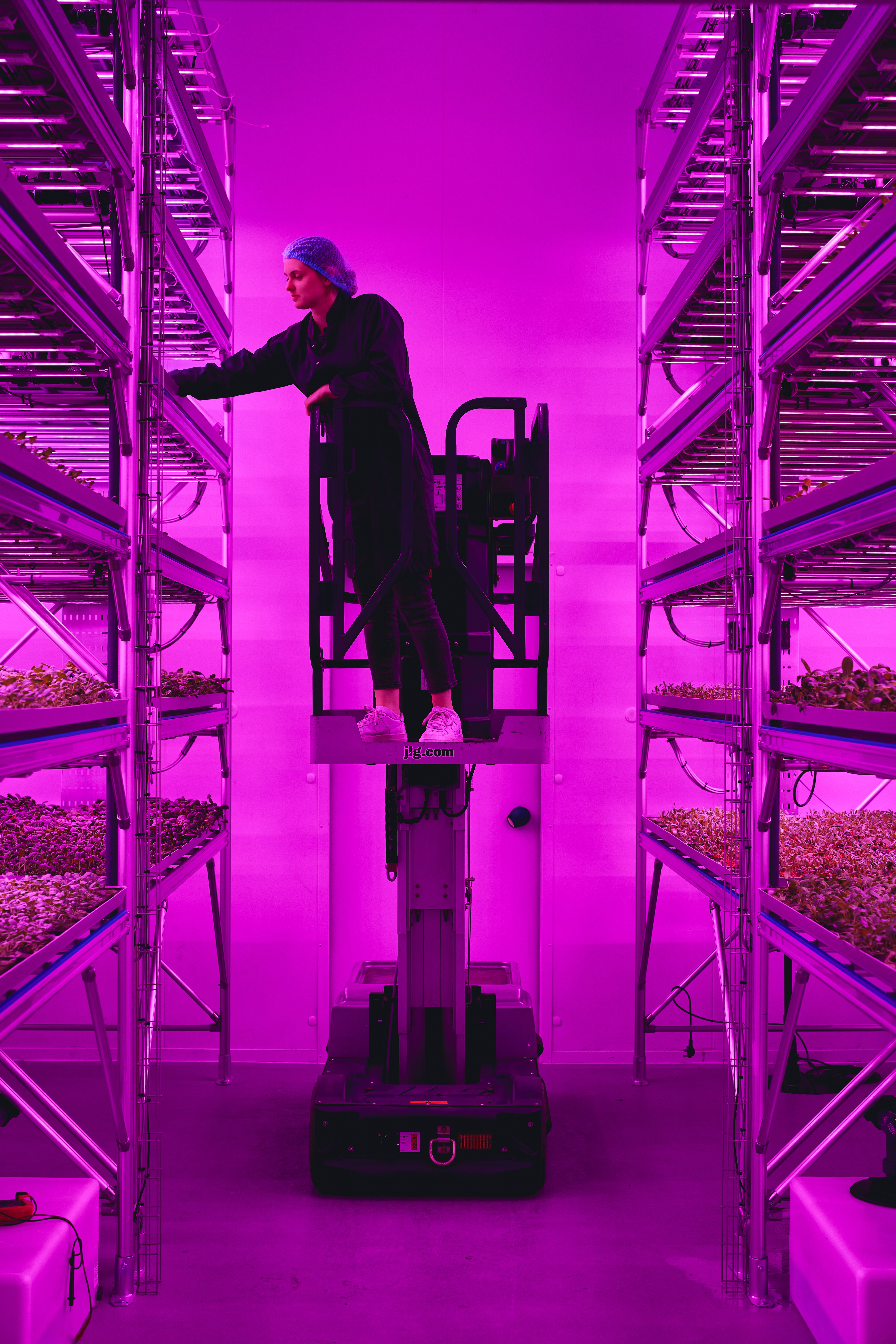‘A no-brainer’: World’s largest skyscraper farm to be built in UK
‘It won’t be long in the future that it will become unacceptable to air-freight fresh herbs into the country,’ said the company’s head of growing

Your support helps us to tell the story
From reproductive rights to climate change to Big Tech, The Independent is on the ground when the story is developing. Whether it's investigating the financials of Elon Musk's pro-Trump PAC or producing our latest documentary, 'The A Word', which shines a light on the American women fighting for reproductive rights, we know how important it is to parse out the facts from the messaging.
At such a critical moment in US history, we need reporters on the ground. Your donation allows us to keep sending journalists to speak to both sides of the story.
The Independent is trusted by Americans across the entire political spectrum. And unlike many other quality news outlets, we choose not to lock Americans out of our reporting and analysis with paywalls. We believe quality journalism should be available to everyone, paid for by those who can afford it.
Your support makes all the difference.Two scientists, an agricultural economist and a farmer are on a mission to eliminate imports of soft fruits, herbs and salads to Britain within a decade with a groundbreaking “skyscraper farm”.
The team at Jones Food Company already supplies nearly a third of the UK’s fresh-cut basil to major retailers, grown in Europe’s largest vertical farm in Lincolnshire.
But it is now testing how to also grow soft fruits, cut flowers and vines vertically at scale in an experimental centre in Bristol, and hopes eventually to be able to grow produce in bulk at a new site in Gloucestershire that will open this autumn.
When built, the site is expected to be the world’s largest vertical farm - the growing space of which will equate to 96 tennis courts stacked in vertical layers.
The company aims to reduce the carbon footprint of food consumed in the UK, eliminate the limitations of the seasons and boost the country’s food security, all while turning a profit.
In 2020, nearly half – 46 per cent – of the food consumed in the UK was imported.

“It won’t be long in the future that it will become unacceptable to air-freight fresh herbs into the country,” said Glyn Stephens, who was once a dairy farmer in mid-Wales before becoming the company’s head of growing. “In my head it will become like smoking, it will just become socially unacceptable.”
Mr Stephens, 56, said that over time he had become increasingly concerned about human impact on the planet, including climate change, and was pleased to be involved in something that he felt was doing some good.
“I’m very aware of the damage that the likes of myself have done in the countryside – not on purpose – just doing what we do,” he said, giving the example of over-fertilising crops.
Although the growers at Jones Food Company use fertiliser, they say they use minimal amounts compared with traditional farming because the fertiliser in the water system that is not taken up by the plants is recycled, treated and then put back into the plants.
Because vertical farming is carried out indoors – and not in the countryside – there is no risk of fertilisers running off and polluting the water streams. The company says it doesn’t use pesticides and that growing food vertically uses 95 per cent less water and can be done using 100 per cent green energy.
“The food is probably much safer and cleaner than what’s grown in the beautiful English countryside, which farmers – like I used to be – go and spray every two or three weeks,” said Mr Stephens.

A vertical farm sees layers of plants grown on trays, stacked vertically with pipes delivering water, feed and nutrients, the company said. The temperature and humidity is controlled and light mimics the hours of sunlight. The inputs are controlled to ensure the product is uniform.
The company is experimenting with strawberries, hops, tomatoes and tree seedlings, and also has the ability to grow “fortified” food by putting extra vitamins into the water supply, but hasn’t yet opted to do this commercially.
James Lloyd-Jones founded the company in 2017 in the wake of Brexit, ahead of the coronavirus pandemic and Russia’s invasion of Ukraine. He said the events had confirmed the fragility of the food-supply chain, while at the same time climate change had played havoc with crop yields.
“You can run vertical farms in a clean manner using renewable energy,” he said. “You shorten the amount of road miles because there’s no air freight, and you can deliver nutritionally high produce within 12 hours into the supermarket supply chains and to the customer.
“It was a bit of a no-brainer.”
Join our commenting forum
Join thought-provoking conversations, follow other Independent readers and see their replies
Comments